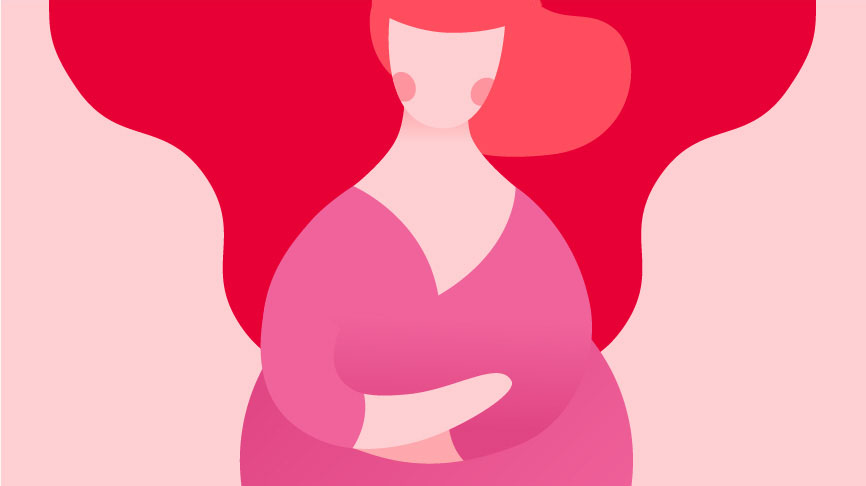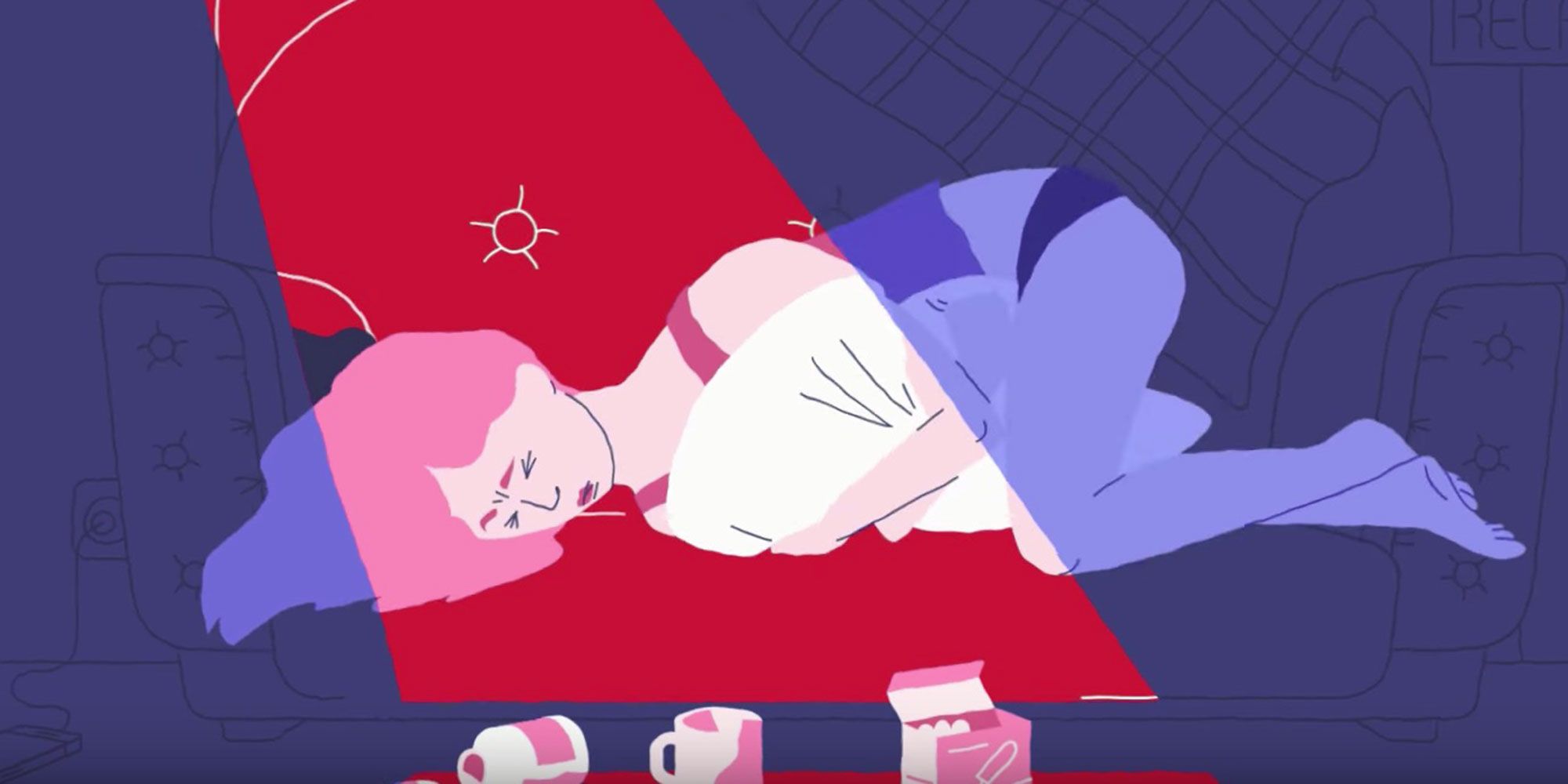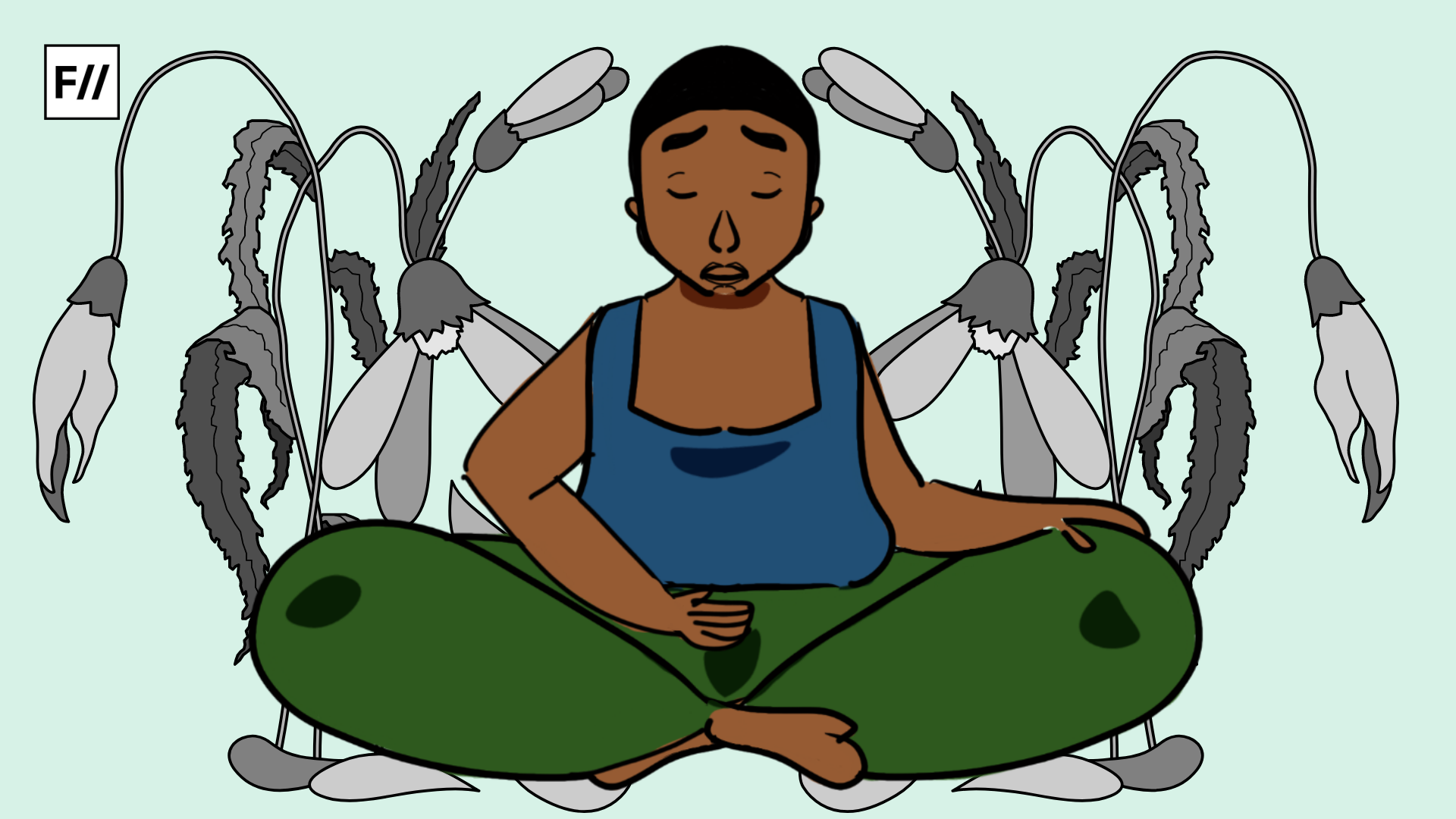Bloating is a common experience and is felt by most people at least once in their lifetime. Experiencing bloating once in a while is normal. However, when a person experiences bloating right before their menstrual period, it is known as period bloating.
Period bloating is one of the early symptoms of premenstrual syndrome [PMS] that can occur a few weeks or days before a period. Other symptoms like stomach cramps, backaches, acne, and muscle aches, may also accompany period bloating. It might be hard to identify period bloating immediately, but some menstruators feel like they have gained weight in the chest or abdomen areas due to bloating.
Period bloating can cause huge discomfort and may negatively affect the menstruator’s mental health. Menstruators have also complained of facing increased body image and self-confidence issues during this phase.“When I have period bloating, I feel like I’ve put on a lot of weight and my whole body feels uncomfortable and suffocating,” describes a menstruator.

What causes period bloating?
Changes in the levels of hormones can cause bloating. PMS occurs approximately from day 15 to day 28 of a 28-day cycle, which is known as the luteal phase. It is during this phase that hormones like estrogen and progesterone usually fluctuate, causing the thickening of the uterus lining. If an individual is pregnant during this time, the fertilised egg attaches itself to the uterus lining. If not, the lining leaves the body, thereby propelling menstrual blood.
The most common symptom of period bloating is the feeling of discomfort throughout the body, difficulty in digesting food, loss of appetite, and turbulent moods. These symptoms affect various other mental and physical changes in the body. Other symptoms of PMS like mood swings, tiredness, food cravings/changes in food pattern, headaches, and acne may also accompany period bloating
Changes in these levels of hormones can also cause the body to retain more water and salt. Due to this, the body’s cells enlarge and store all the water. This might also cause the feeling of bloating. Menstruators usually experience severe bloating on the first day of their period.
Other possible causes of period bloating are genetic factors, the type and quantity of supplements that are consumed regularly (like vitamins and minerals), food habits (high amounts of salt are also known to trigger bloating), and consumption of caffeine or alcohol. Mental health issues like stress, anxiety, and panic attacks are also known to shoot up period bloating. Certain medications prescribed for various health conditions may also upset the hormonal changes in the body, leading to bloating at the time of menstruation.
Also read: Menstrual Migraine: Unpacking The Basics Of Period Related Hormone Headaches

Symptoms of period bloating
The most common symptom of period bloating is the feeling of discomfort throughout the body, difficulty in digesting food, loss of appetite, and turbulent moods. These symptoms affect various other mental and physical changes in the body. Other symptoms of PMS like mood swings, tiredness, food cravings/changes in food pattern, headaches, and acne may also accompany period bloating.
According to the American College of Obstetricians and Gynecologists, over 90 percent of menstruators experience premenstrual symptoms like bloating, headaches, and moodiness.
Talking and sharing experiences of menstruation is considered a social taboo, and symptoms like period bloating, mood swings, and changes in appetite are not given the importance they deserve. Although these symptoms are not life-threatening, they still affect the quality of life of menstruators. It is important and necessary to give importance to menstruation and the various ways in which it manifests in different individuals
The diagnosis for period bloating does not consist of a single test. The doctor usually investigates all the details of the individual’s menstruation, including when it appears and difficulties experienced in recent cycles. The doctor may check the frequency of period bloating, and other allied symptoms to decide if treatment or medications are required.
Different menstruators may experience period bloating in the same way or they can have a completely different experience as well. Some of the experiences shared by people who menstruate are: “During my periods, bloating is everywhere on my body, and especially my stomach”, “Physically it affects my appetite – I end up feeling nauseous or uncomfortable. My abdomen visibly bloats, which is not great because I’ve struggled with body dysmorphia before, and I stop fitting into some of my clothes when I’m bloated”, “Bloating affects my mood drastically. Because of the weight gain, I reduce my food intake which further leads to mood swings and gastric issues”. The main symptoms of period bloating are common, but the overall experience differs amongst individuals.

Societal gaslighting and period stigma
Period stigma is a term used when menstruators are discriminated against and shamed for their experience. Lack of access to sanitary products, and physical and verbal shaming, are among the things that people face, for something as normal and natural as periods. Menstruators are often called “dirty” or “unclean” and are denied entry to spaces like the kitchen, places of worship, etc. This can add to the mental and physical discomfort of the person who menstruates.
People are gaslighted into believing that the pain and difficulties they go through during their periods are not a big deal. Symptoms of periods are often not taken seriously by medical institutions, domestic spaces, or workplaces, and menstruators are forced to work and perform gendered labour even when they face menstrual distress.
Talking and sharing experiences of menstruation is considered a social taboo, and symptoms like period bloating, mood swings, and changes in appetite are not given the importance they deserve. Although these symptoms are not life-threatening, they still affect the quality of life of menstruators. It is important and necessary to give importance to menstruation and the various ways in which it manifests in different individuals.

Period stigma can be significantly reduced if we as a society collectively address its various layers without stigmatising them or isolating individuals for going through menstruation. Affordable sanitary products must be made accessible to all menstruators, and open conversations about symptoms of periods should be facilitated and encouraged, and workplace and school/college policies must be tailored based on the needs of menstruators.
Shaming and gaslighting can lower self-esteem and severely affect the mental health of menstruators. This might lead them to believe that their experiences are invalid. Normalising periods would help people to seek the help they need, and give due attention to things like bloating, PMS, and period pain, which remain heavily uninvestigated.
Also read: Premenstrual Syndrome: PMS Is Not About ‘Bad Moods’ That Can Be Dismissed Easily
Featured Image: Ritika Banerjee for Feminism In India
About the author(s)
Prathyusha [they/them] is a queer writer from Chennai. When they are not reading, they are either baking or buying books




